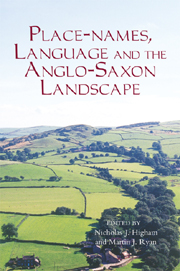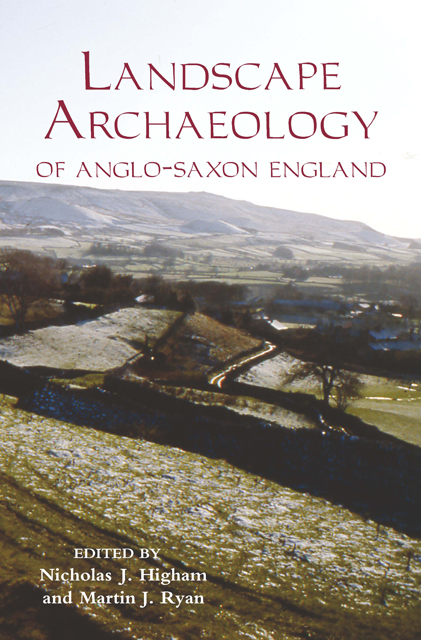23 results
Mixed precision algorithms in numerical linear algebra
-
- Journal:
- Acta Numerica / Volume 31 / May 2022
- Published online by Cambridge University Press:
- 09 June 2022, pp. 347-414
- Print publication:
- May 2022
-
- Article
-
- You have access
- Open access
- Export citation
Bede and the future. Edited by Peter Darby and Faith Wallis. (Studies in Early Modern Britain and Ireland.) Pp. xv + 269. Farnham–Burlington, Vt: Ashgate, 2014. £70. 978 1 4094 5182 2
-
- Journal:
- The Journal of Ecclesiastical History / Volume 66 / Issue 4 / October 2015
- Published online by Cambridge University Press:
- 02 September 2015, p. 849
- Print publication:
- October 2015
-
- Article
- Export citation
1 - Bede and the Early English Church
-
-
- Book:
- Leaders of the Anglo-Saxon Church
- Published by:
- Boydell & Brewer
- Published online:
- 05 February 2013
- Print publication:
- 15 April 2012, pp 25-40
-
- Chapter
- Export citation
Index
-
- Book:
- Place-names, Language and the Anglo-Saxon Landscape
- Published by:
- Boydell & Brewer
- Published online:
- 05 February 2013
- Print publication:
- 17 March 2011, pp 241-245
-
- Chapter
- Export citation
List of Illustrations
-
- Book:
- Place-names, Language and the Anglo-Saxon Landscape
- Published by:
- Boydell & Brewer
- Published online:
- 05 February 2013
- Print publication:
- 17 March 2011, pp vii-viii
-
- Chapter
- Export citation
Acknowledgements
-
- Book:
- Place-names, Language and the Anglo-Saxon Landscape
- Published by:
- Boydell & Brewer
- Published online:
- 05 February 2013
- Print publication:
- 17 March 2011, pp ix-ix
-
- Chapter
- Export citation
Abbreviations
-
- Book:
- Place-names, Language and the Anglo-Saxon Landscape
- Published by:
- Boydell & Brewer
- Published online:
- 05 February 2013
- Print publication:
- 17 March 2011, pp xi-xii
-
- Chapter
- Export citation
Frontmatter
-
- Book:
- Place-names, Language and the Anglo-Saxon Landscape
- Published by:
- Boydell & Brewer
- Published online:
- 05 February 2013
- Print publication:
- 17 March 2011, pp i-iv
-
- Chapter
- Export citation
Contents
-
- Book:
- Place-names, Language and the Anglo-Saxon Landscape
- Published by:
- Boydell & Brewer
- Published online:
- 05 February 2013
- Print publication:
- 17 March 2011, pp v-vi
-
- Chapter
- Export citation

Place-names, Language and the Anglo-Saxon Landscape
-
- Published by:
- Boydell & Brewer
- Published online:
- 05 February 2013
- Print publication:
- 17 March 2011
List of Contributors
-
- Book:
- Place-names, Language and the Anglo-Saxon Landscape
- Published by:
- Boydell & Brewer
- Published online:
- 05 February 2013
- Print publication:
- 17 March 2011, pp x-x
-
- Chapter
- Export citation
Index
-
- Book:
- The Landscape Archaeology of Anglo-Saxon England
- Published by:
- Boydell & Brewer
- Published online:
- 16 February 2023
- Print publication:
- 21 October 2010, pp 223-231
-
- Chapter
- Export citation
Abbreviations
-
- Book:
- The Landscape Archaeology of Anglo-Saxon England
- Published by:
- Boydell & Brewer
- Published online:
- 16 February 2023
- Print publication:
- 21 October 2010, pp xii-xii
-
- Chapter
- Export citation
Frontmatter
-
- Book:
- The Landscape Archaeology of Anglo-Saxon England
- Published by:
- Boydell & Brewer
- Published online:
- 16 February 2023
- Print publication:
- 21 October 2010, pp i-iv
-
- Chapter
- Export citation
List of Illustrations
-
- Book:
- The Landscape Archaeology of Anglo-Saxon England
- Published by:
- Boydell & Brewer
- Published online:
- 16 February 2023
- Print publication:
- 21 October 2010, pp vii-viii
-
- Chapter
- Export citation
Contributors
-
- Book:
- The Landscape Archaeology of Anglo-Saxon England
- Published by:
- Boydell & Brewer
- Published online:
- 16 February 2023
- Print publication:
- 21 October 2010, pp ix-x
-
- Chapter
- Export citation

The Landscape Archaeology of Anglo-Saxon England
-
- Published by:
- Boydell & Brewer
- Published online:
- 16 February 2023
- Print publication:
- 21 October 2010
Acknowledgements
-
- Book:
- The Landscape Archaeology of Anglo-Saxon England
- Published by:
- Boydell & Brewer
- Published online:
- 16 February 2023
- Print publication:
- 21 October 2010, pp xi-xi
-
- Chapter
- Export citation
Contents
-
- Book:
- The Landscape Archaeology of Anglo-Saxon England
- Published by:
- Boydell & Brewer
- Published online:
- 16 February 2023
- Print publication:
- 21 October 2010, pp v-vi
-
- Chapter
- Export citation
Contributors
-
-
- Book:
- The Cambridge Dictionary of Christianity
- Published online:
- 05 August 2012
- Print publication:
- 20 September 2010, pp xi-xliv
-
- Chapter
- Export citation



